Dr. Satyajit Mayor, a well-known Indian biologist born in 1963, has emerged as one of the leading life scientists in the country. Prof. Satyajit Mayor has been instrumental in the development of stem cells in Regenerative biology. Satyajit Mayor (Indian biologist) is heading the inStem Institute in Bangalore India. He also headed the National Centre for Biological Sciences (NCBS), a leading research organization in Bangalore. Since 2024, Professor Satyajit Mayor has been spiting as a Leverhulme International Professor at Warwick Medical School in the Centre for Mechanochemical Cell Biology. Satyajit Mayor scientist, received the Infosys Prize for Life Sciences in 2012 for his having done great work on the regulated cell surface organization and membrane dynamics.
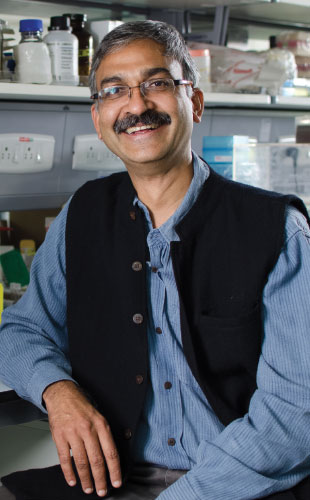
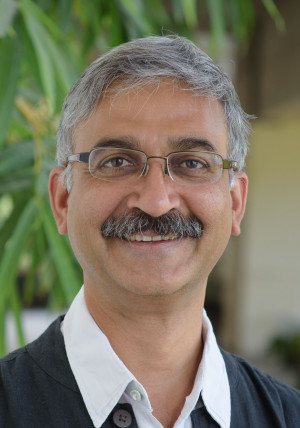
| Date of Birth | January 26, 1963 |
| Place of Birth | Baroda (now Vadodara), Gujarat, India |
| Education | He studied chemistry at the Indian Institute of Technology (IIT), Bombay, completed his Ph.D. in life sciences at The Rockefeller University, New York, and conducted postdoctoral research at Columbia University |
| Associations | Currently, he is a Senior Professor and Director at the National Centre for Biological Sciences (NCBS) in Bangalore. He has also served as Director of the Institute for Stem Cell Biology and Regenerative Medicine (inStem) and is a founding director of the Centre for Cellular and Molecular Platforms (CCAMP) |
| Age | 61 years (as of 2024) |
| Nicknames | – |
| Epithets | |
| Prominent Acchivements | Recipient of the Infosys Prize for Life Sciences (2012), TWAS Prize in Biology (2010), and various fellowships and accolades for his contributions to cell biology |
| Height | – |
| Hometown | Bangalore, Karnataka, India (where he has been based since 1994) |
| Religion | – |
| Satyajit Mayor Email | mayor@ncbs.res.in |
Satyajit Mayor Education
Dr. Satyajit Mayor has had an incredible academic background in the field of life sciences. He received his MSc in Chemistry from the Biological and Chemical Sciences Division at IIT Bombay.
- After finishing his MSc in Chemistry the candidate went on to do a PhD in Life Sciences at Rockefeller University in New York.
- While on a postdoctoral fellowship at Columbia University, he developed new tools for understanding membrane lipid and GPI-anchored protein trafficking in mammalian cells with state-of-the-art quantitative fluorescence microscopy.
Satyajit Mayor CV
Based on the detailed analysis of Satyajit Mayor CV it seems possible to state that his achievements in academic and working life are dedicated to the progression of cell biology.
- Establishing his independent laboratory in 1995 as part of the Tata Institute of Fundamental Research, he joined the National Centre for Biological Sciences in Bangalore, where he has been very active and productive since then.
Satyajit Mayor Google Scholar
Prof. Mayor has been awarded as a distinguished scholar and his work is indexed on Google Scholar as Satyajit Mayor. Today he is the Leverhulme International Professor at the Centre for Mechanochemical Cell Biology, at Warwick Medical School, thereby continuing his pioneering work in the field of cellular biology.
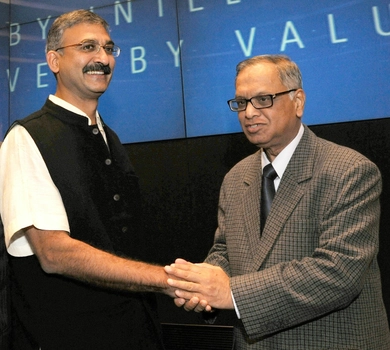
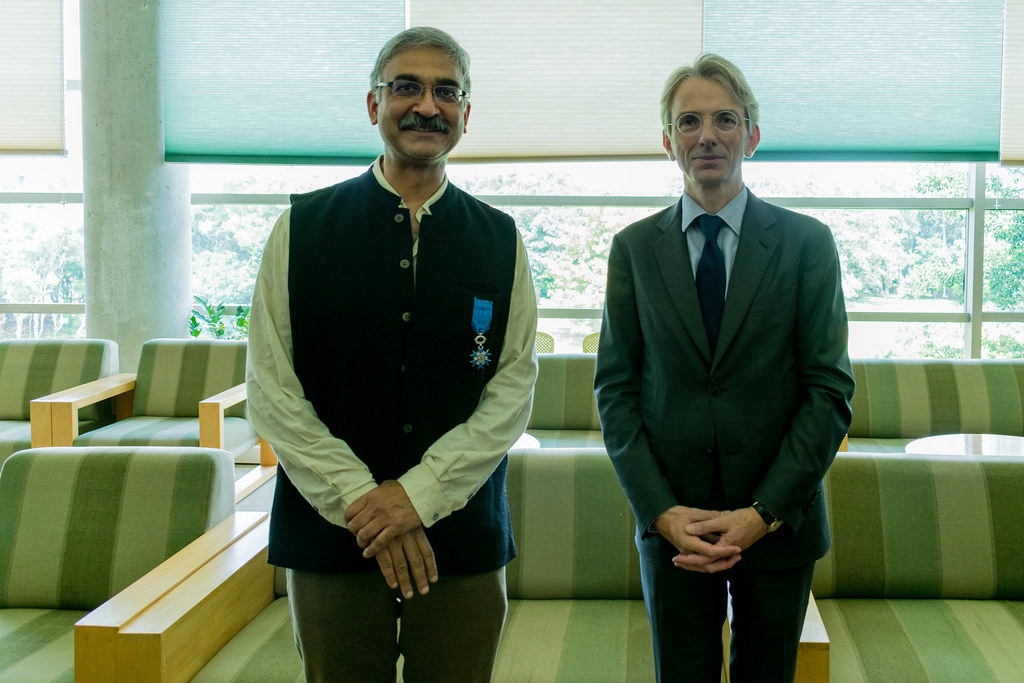
| Also Read About: Dr. Rajesh Gokhale — the visionary scientist driving India’s biomedical research revolution and inspiring the next generation of innovators. |
Dr. Satyajit Mayor: Personal Life and Legacy
Satyajit Mayor, an eminent biologist of India, is an artist, in fact, a painter in searching out novel facts in the field of cellular biology. Mayor was recently awarded the Infosys Prize for Life Sciences for his work in the field; in recent years, Mayor’s elucidation of regulated cell surface organization and membrane dynamics has made him arguably the foremost scientific mind in the country.
A Unique Path to Biology
Little as it seems Satyajit Mayor was born to a Malayali mother and a Punjabi father and his early days in Vadodara were as colourful as his later life.
- A talented young cricketer, he played for the under-19 Baroda team and shared the team with Kiran More and other great players. Though a great sports enthusiast, his academic strength got him into IIT-Bombay where he started with Mechanical Engineering.
- However, the Mayor’s actual interest in biology found its way during his education at the IIT-Bombay. Stimulated by such teachers as Professor Anil Lala and a school biology teacher CM George, he changed to biology; initiation was made with a chemistry course in IIT for transition to the new academic interest.
Satyajit Mayor Wife
Satyajit Mayor’s wife’s name is Ayisha, she is a visual artist. It was Ayisha who influenced Professor Satyajit Mayor in the world of Art.
From IIT-Bombay to International Recognition
A few years later, Mayor successfully defended his Ph.D. thesis at Rockefeller University in New York; apart from deepening scientific views, the author got acquainted with the world of art. The promotion of appreciation of arts came as a result of influence from his wife Ayisha, a visual artist.
- The mayor moved to Bangalore in India in 1994. He then moved to the National Centre for Biological Sciences (NCBS) and his work started shaping cells and their workings across the world.
Satyajit Mayor Achievements in Science
The Infosys Prize for Life Sciences is awarded for the Mayor’s investigations regarding cell surface organization and membrane trafficking.
- His work connects biology, physics, and chemistry to help the cell to self-organize and cooperate with others of its kind.
Personal Passions: Art, Literature, and Beyond
In addition to science, art, literature, and intellectual activity are balm to the Mayor’s soul.
- His favorite authors, Amitava Ghosh & Haruki Murakami bear testimony to his ability and willingness to search for different views.
- The mayor remains an active scientist in addition to his love for books and exploring politics and anthropology of science.
A Life of Fulfillment
Where Mayor experiences the most satisfaction is not in the accolades and the glories, but rather in the means, in the joy of discovery, and in that most treasured of things: intellectual freedom. From ‘‘This is what I wanted to do,’ and I am getting to do it; and this is something I planned to do of my own free will, and now I have the chance to do it.”

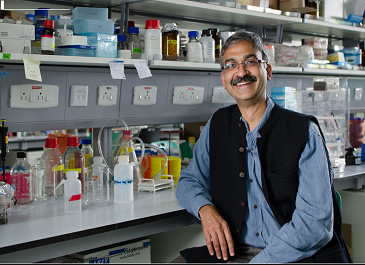
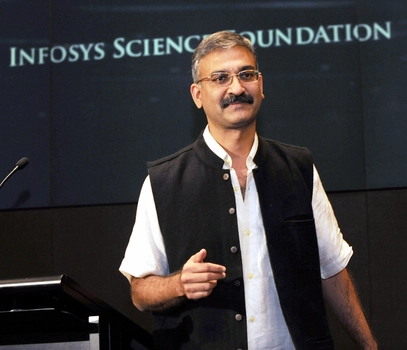
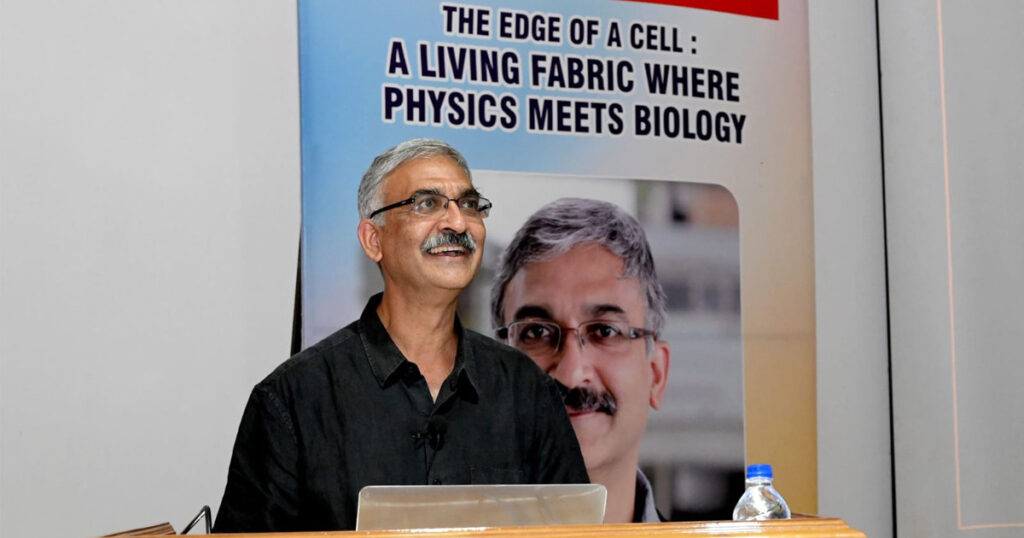
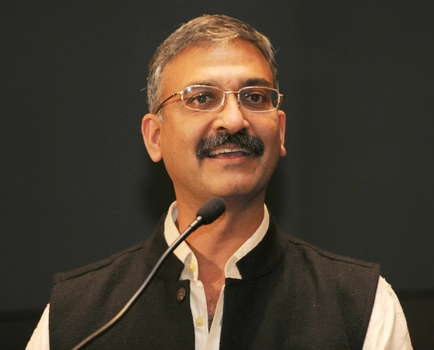
Satyajit Mayor NCBS
- Satyajit Mayor who completed his postdoctoral work at the Columbian University started his laboratory at NCBS National Centre for Biological Sciences in 1995.
- His research group at Satyajit Mayor NCBS aims to dissect the molecular underpinnings of endocytosis in metazoan cells at multiple resolutions.
- At the molecular level, his laboratory focuses on the actors in endocytosis, and at the mesoscopic level the physical characteristics and scaffolding of cell membranes.
- On a cellular level that is, their research focuses on incorporating endocytosis into other themes of a cell, for instance, cellular signaling and cell surface steadiness.
- At the tissue level, the team investigates the impact of endocytosis on developmental programs as well as tissue morphogenesis.
- Research carried out by The NCBS Faculty comprises Prof Mayor among others at the forefront of unraveling current and progressive biological research.
NCBS is Government or Private
To those who are curious, is NCBS government or private? No, it is a government institution affiliated with the Tata Institute of Fundamental Research (TIFR) aimed at nurturing high-quality biological research.
Satyajit Mayor Lab Members
Dr. Satyajit Mayor’s lab comprises a diverse group of researchers focused on understanding the complex molecular mechanisms of cellular organization and membrane dynamics. His lab members often include postdoctoral fellows, doctoral candidates, and visiting researchers who collaborate on groundbreaking projects related to endocytosis, membrane organization, and cellular signaling. The team works at the National Centre for Biological Sciences (NCBS), fostering innovation and scientific excellence.
Satyajit Mayor Awards and Honors
The following rewards are just some where Professor Mayor has excelled: Wellcome Trust International Senior Research Fellowship; Swarnajayanti Fellowship; Shanti Swarup Bhatnagar Award; and the JC Bose Fellowship. His achievements showcase the type of innovative research that is being practiced at NCBS and this places the academic as well as research institution as one of the best in India. Below is a detailed table of Satyajit Mayor Awards and Achievements:
| Rockefeller University and the University of Oxford | Award/Honor | Organization |
| 2015 | Elected as Foreign Associate of the US National Academy of Sciences | US National Academy of Sciences |
| 2013 | Distinguished Alumnus of IIT Bombay | Indian Institute of Technology Bombay |
| 2013 | Elected EMBO Fellow | European Molecular Biology Organization (EMBO) |
| 2012 | Infosys Prize for Life Sciences | Infosys Science Foundation |
| 2010 | TWAS Prize in Biology | The World Academy of Sciences (TWAS) |
| 2010 | EMBO Global Lecturer | European Molecular Biology Organization (EMBO) |
| 2006–2016 | JC Bose Fellowship | Department of Science and Technology (DST), India |
| 2003 | Shanti Swarup Bhatnagar Award | Council of Scientific and Industrial Research (CSIR), India |
| 2003–2008 | Swarnajayanti Fellowship | Department of Science and Technology (DST), India |
| 1999–2004 | Wellcome Trust International Senior Research Fellow (Biomedical Research, India) | Wellcome Trust |
| 2001 | Mizutani Foundation for Glycoscience Award | Mizutani Foundation |
| 1992–1995 | Helen Hays Whitney Postdoctoral Fellowship | Helen Hay Whitney Foundation |
| 1988 | Rockefeller-Oxford Student Exchange Program Recipient | Rockefeller University and University of Oxford |
| 1986–1991 | Lucille P. Markey Charitable Trust Graduate Fellowship | Lucille P. Markey Charitable Trust |
| 1984 | Visiting Students Research Program Recipient | Tata Institute of Fundamental Research (TIFR) |
Satyajit Mayor of Warwick
In 2024, Dr. Mayor was appointed as a Leverhulme International Professor at Warwick Medical School in the Centre for Mechanochemical Cell Biology. This role signifies his global academic influence, allowing him to extend his research on cellular processes while mentoring young scientists at an international level.
This blend of professional excellence and mentorship showcases why Dr. Mayor continues to be a pivotal figure in molecular biology and global scientific communities.
